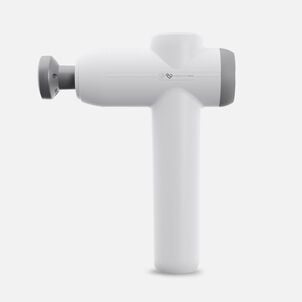You've probably heard that if you want to contribute to a health savings account (HSA), you need to have coverage under a high deductible health plan (HDHP). But what if you have other coverage too? Depending on what it is, you may or may not be able to contribute to your HSA. Let's take a look.
First, an HDHP is clearly defined by the IRS. It's not just any plan with a high deductible. An HDHP must have:
- A minimum deductible of $1,600 if participating as an individual and $3,200 if participating as a family in 2024 (these amounts are indexed annually).
- A maximum out-of-pocket of $8,050 for those participating in the HDHP as individuals and $16,000 for those participating as two-person or family in 2024
- No coverage before the deductible for anything other than preventive care. And preventive care is also defined by the IRS (under the Affordable Care Act, all non-grandfathered plans must cover preventive care before the deductible).

The idea behind HDHPs/HSAs is that people have the opportunity to save tax-free money to pay for medical care, but they also have no choice but to use their own money to pay for their healthcare (except preventive care) before they meet their HDHP deductible. The hope then, is that people will use their healthcare dollars wisely — shopping carefully for medical care and avoiding unnecessary expenses.
Research indicates, however, that people with HDHPs generally aren't "shopping" for healthcare they way they would with other commodities. That is, patients aren't getting price quotes ahead of time or comparison-shopping across multiple providers before scheduling a medical appointment.
But that's a discussion for another day. For now, the issue is that the HDHP/HSA concept is rooted in the idea that patients will be spending their own money pre-deductible. To make that work, the IRS doesn't allow people to have any other non-HDHP medical coverage in addition to the HDHP. It would defeat the purpose of the HDHP concept if the enrollee could also have another health plan that would step in and pay some or all of the pre-deductible costs.
For example, if your employer offers an HDHP and your spouse's employer offers a non-HDHP, you could be covered under both plans. But in that case, you wouldn't be eligible to put any money in your HSA. Even if the non-HDHP coverage through your spouse's employer had a higher deductible than your HDHP, the fact that you'd have additional medical coverage under a non-HSA-qualified plan would make you ineligible to contribute money to an HSA.
[You can be covered under two HDHPs, though. If your employer and your spouse's employer both offer HDHPs, you can opt for double coverage and still contribute to your HSA.]
Other coverage that is allowed in addition to an HDHP
The IRS does allow you to have some types of coverage in addition to your HDHP, without jeopardizing your eligibility to contribute money to your HSA. They include:
- Workers' compensation
- Critical illness/specific disease coverage (a plan that will pay a lump sum if you're diagnosed with invasive cancer, for example)
- A fixed indemnity hospitalization plan that pays a specific amount of money based on the amount of time that you're hospitalized, without regard for how much the hospitalization actually costs.
- A plan that only provides discounts (see question 9 in this IRS series of questions and answers)
- Accident coverage (a plan that will reimburse you up to a specified amount if you need medical care following an accident or injury)
- Disability coverage (short-term or long-term)
- Dental and vision coverage
- Long-term care coverage
What do all of these types of coverage have in common? They're not regulated by the Affordable Care Act and are not considered minimum essential coverage. That means if you were to have one or more of them as your only form of coverage, you'd be considered uninsured. Since these types of coverage are not considered real health insurance, the IRS allows you to have them, in addition to your HDHP, and still be eligible to put tax-free money in your HSA.
It's worth noting that some of these supplemental products could end up reimbursing you for some or all of your HDHP deductible, depending on the circumstances. This is true for accident plans, critical illness plans, and fixed indemnity plans. In these cases, keep in mind you can't withdraw tax-free money from your HSA to cover any expense for which you're reimbursed by another party.
—
Thank you for visiting the HSA Store Learning Center. Don’t forget to follow us for more helpful tips on Facebook, Instagram, and Twitter.


.png)
















